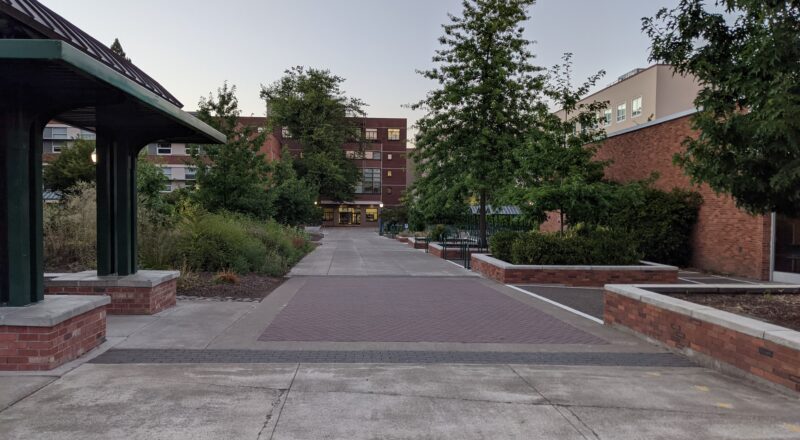The University of Oregon is experiencing a surge in COVID cases and the GTFF, which represents graduate employees at the UO, says the administration’s actions are not enough to create a safe environment for members. UO Provost Patrick Phillips announced changes in response to Omicron last Thursday, but GTFF says they are inadequate, confusing, and at least one of them constitutes a change in working conditions that was not bargained over that constitutes an unfair labor practice.
UO reported that 1,032 students and employees tested positive for COVID for the week starting Jan. 2, the week that winter term started. That is over 2.5x more cases than all of fall 2021. During the week of Jan. 2, the UO had over a quarter of all Lane County cases, despite the number of UO employees and students representing about 7% of population of the county.
One measure the UO announced earlier this month makes it an option for instructors to move their classes to synchronous online instruction if 20% or more of their students are out because of COVID related absences. Some difficulties with this policy the GTFF says is that students are not always reporting why they are absent and each department implements the policy differently. The union also says it does not get at the root causes of the high levels of spreading.
In order to create safer conditions the union is taking several actions and has demands of the university. The biggest of the request is to move all classes to remote for two weeks or until cases subside to reasonable levels. This week with the UO not following through with that request they have urged all members to make requests of their department chairs to move their classes to remote. Additionally the union is demanding the university provide N95s or K95s to all UO community members.
Since putting out their demands GTFF has seen support from ASUO, Democratize UO, and AFL-CIO President Liz Shuler. Anthropology faculty have asked the university to put a two week pause on in person classes and go online. While United Academics, the union that represents faculty at the University of Oregon, isn’t willing to go that far in their demands, they say faculty should have the option of whether to teach in person or remote.
Another big policy that was put into place in January by the University of Oregon is that instructors must record their in-person classes, unless there is a “pedagogical reason not to do so.” GTFF says this constitutes a change in working conditions that was not bargained over, constituting an unfair labor practice. GTFF filed an Unfair Labor Practice (ULP) with the Oregon Employee Relations Board over this matter. In addition to this change in policy not being bargained over the union says there are “issues of privacy, security, intellectual property ownership and academic freedom, use of recordings in matters of discipline and performance evaluations, training on the policy and expected skills, and equipment needs within the classroom.“
GTFF has committed to engage in expedited impact bargaining on implementing changes during this pandemic.
